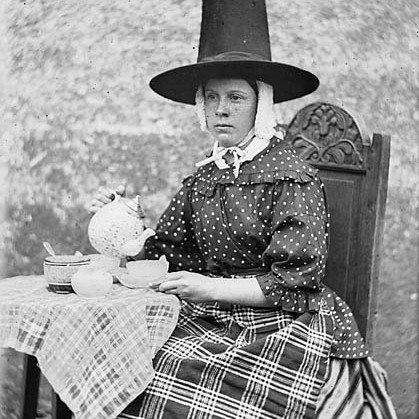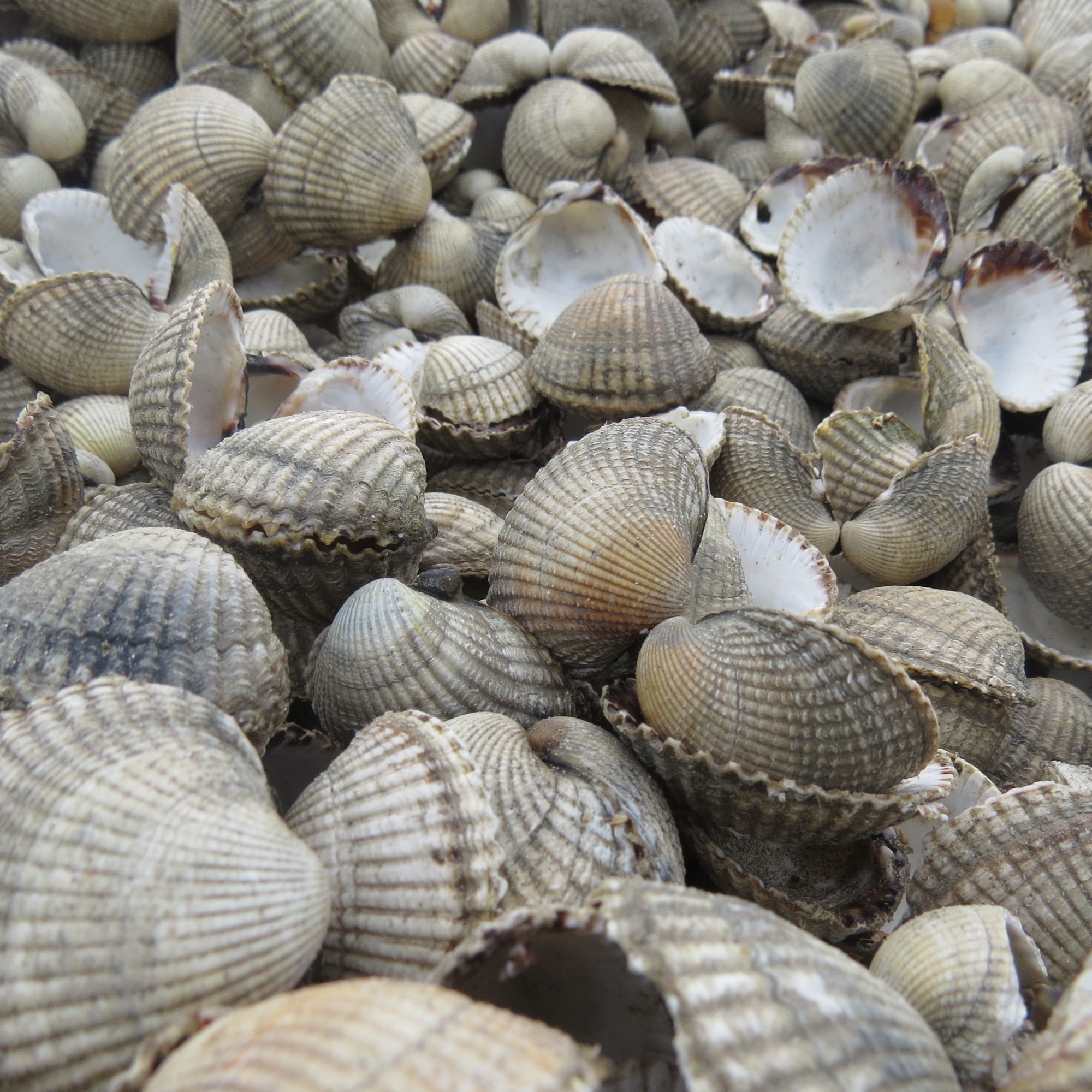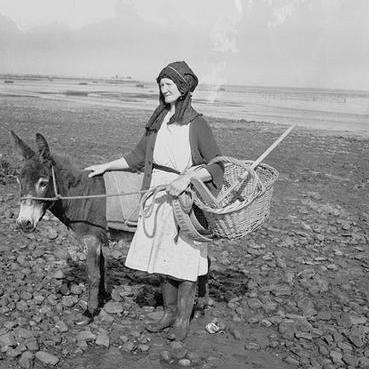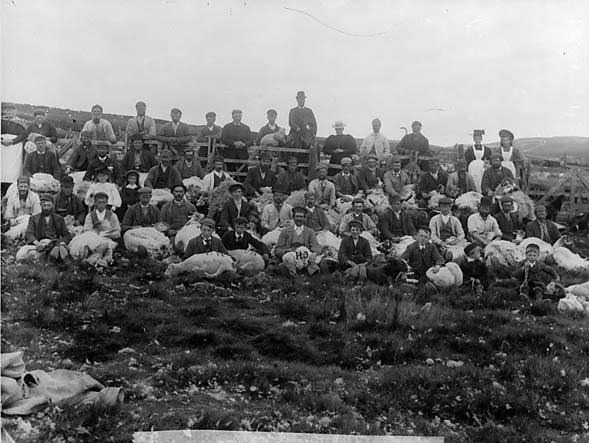Written by Carwyn Graves, a reflection of the Decolonising Food Geography Prifysgol Bangor University Seminar in the Dialogues in Food Geography seminar series.
Hanesydd Bwyd, awdur, garddwr a ieithgi o Gaerdydd. Awdur Afalau Cymru (2018) a rhan o’r grwp fu’n gyfrifol am sefydlu’r casgliad cenedlaethol o afalau Cymreig yng Ngardd Fotaneg Cymru. Food Historian, author, public speaker and gardener from Wales. Author of the bestselling Apples of Wales (2018) and forthcoming Welsh Food Stories.
One of the most commented-upon aspects of the agri-industrial food system is how unrooted it is; despite spreading its tentacles into communities of every description the world over, it fundamentally belongs nowhere. It seems reasonable then as we seek alternatives with different characteristics, to do so in places where we can find roots. But roots are themselves problematic and often contested, as much of Western society has been reminded over the past couple of years; how then can we chart a way forward for food that avoids the Scylla of faceless capital on the one hand and the Charybdis of a romanticized past on the other?
One approach is to look at the question from a different vantage point. Within the UK, a perspective usually ignored in mainstream discourse is that of the Celtic margins; and when coupled with the historic side-lining of food producers more broadly and small-scale farmers in particular within government policy in this country (extending back at least to the Corn Laws era of the early 19th century), we have an underexplored standpoint to take advantage of.
Wales in particular offers by its very being a nuanced set of lenses through which to view the idea of decolonizing food. Wales in the early 2020s is a palimpsest of identities, laid on top of each other over a period of 1500 years, but with each layer retaining some cultural-historical significance. In the context of food, that means experiences as diverse as farming families who cherish the knowledge of having cultivated the same land from father to son over 800 years, and on the other hand communities in post-industrial areas where food insecurity has itself become a multi-generational experience.[1] It means an older generation of Welsh-speakers who retain the memory of traditional dishes, names and food preparation methods that died out with the demise of the old ways of life in the middle decades of the twentieth century, and it also means the second and third generation Welsh descendants of immigrants who suffer racism, structural injustice and multiple food worlds that they may or may not claim as ‘theirs’.[2] What does decolonising food geography look like in a context like this? A context with plenty of lived experience of marginalisation and colonization (both as colonizer and colonized), early industrialization and early de-industrialization, of self-sufficiency and of commodification.
Three key elements that emerge from a consideration of this broad canvas are land, power and food heritage. All three are and have been contested realities in Wales, with food heritage in a Welsh context being a much thornier field than many neighbouring societies, questions around land reform animating public debate today as in the 1800s, and power residing far away from the majority of food producers and consumers both in the past and the present.
Wales’ food heritage brings out the contours of all this most clearly. The land of leeks, lamb and Welsh rarebit today has a commodified pastiche of its traditional food, and cultural attitudes towards ‘Welsh food’ historically are a major reason for this:
St Peter went outside of heaven’s gates and cried with a loud voice, ‘Cause Babe! Cause Babe,’ that is as much as to say ‘Roasted Cheese!’ Upon hearing this, the Welshmen ran out of heaven at a great pace…and when St Peter saw them all out he suddenly went into heaven and locked the door – and so got all the Welshmen out!’ (Andrew Boorde, d.1549: London)
To pick just one episode: five hundred years ago, Boorde could write ethnic ribald for an educated London audience and lean on Welsh rarebit to do so, an exotic ‘white meat’ dish prepared and enjoyed only by the semi-barbaric Welsh, who all at the time spoke an unintelligible babble. Alternative and perhaps errant ‘meats’ is often a theme: the poor of Anglesey in 1775 ate “little meat, but [they] eat cheese and butter, bacon, tame and wild fowls, sea fish, oysters, crabs, lobsters, shrimps, prawns, muscles and cockles”. Displaying attitudes with parallels in our day for other world cultures, a staple protein source for the working poor here as in much of Wales – local oysters – became a commodity for the British upper classes, exported around the country as ‘Bristol’ oysters. As fascinating specimens to be observed and commented upon during tours of romantic Wales, the Welsh and their food and customs were objects of interest; as actors with agency, perhaps not so much.
Within the culture, one of the outcomes of this postcolonial gaze was the fact that cookbooks published in Welsh as late as the early 20th century contained only English recipes, despite a wealth of local, indigenous dishes and food preparation methods conveyed orally.[3] Similarly, from among cc.10 million newspaper articles and 1 million journal articles from Wales pre 1900 digitized by the National Library, not one returns hits for the phrase ‘Welsh food’.
***
These different actors, mutatis mutandis, remain present today in Wales. And this historic backdrop – whether consciously or not – is present in discussions around post-Brexit land policy, rewilding initiatives, the fate of the Welsh language in rural communities, racism and exclusion, and the nature of a more inclusive future Wales. Welsh government rhetoric and skeleton legislation is supportive; of a radical environmental agenda, of ‘future wellbeing’, of the language and culture, of inclusivity and now of a Welsh food strategy that includes farming.[4]
But the tension – and the fear for the future – are real. Possibilities arising from Brexit and future trade deals at Westminster are often framed as re-colonisation. Its outcomes drawn from discourses of land, food and power arising from geographically marginal, indigenous and extensive farming landscapes. Such continued coloniality is seen to further weaken traditional and indigenous land-based interests, food access and wider sustainability.[5]
Here parallels with Scottish Highland and Island experience are instructive. Ravaged historically to a much greater extent by hostile government policy and indolent, profit-obsessed landowners, the Scottish Highlands are emptied landscapes in ways which the Welsh uplands emphatically are not. Land sovereignty became therefore the necessary precondition for community flourishing, and food futures driven by local actors and interests – whatever their origins. As Alistair McIntosh – long-term campaigner and thinker in this context – testifies, there is a spiritual dimension to these questions, ignored at our peril and relevant to the wider efforts to save a living biosphere.[6]
Contested and problematic though they may be, roots offer a different logic to the food system than the dominant industrial model. People throw down roots wherever they settle, and where a culture has inhabited a landscape since time immemorial, those roots carry significance that can shape entire lives. Respect for people making their own decisions together in their communities is a radically different approach to food than our present paradigm. A nuanced look at the past and present in Wales and Highland Scotland through the lenses of land, power and food heritage suggest it is the necessary basis for an equitable way forward.
Carwyn Graves, 18/12/21
Land, Food Heritage and Power was held as a one-day seminar hosted by Bangor University on 16/06/21 as part of the RGS ‘Dialogues in Decolonising Food Geography’ series. Participants and contributors came from across academia and wider society.
[1] Natasha Toone, presentation on food access in NE Wales
[2] Cf Olwen Ford, family farmer and wool-processer in Llanfrothen and Maggie Ogunbanwo, presentation on an African food business in a working class, Welsh-speaking Gwynedd village
[3] Dysgl Bren a Dysgl Arian, Hughes
[4] Glenda Thomas, FUW, presentation on the changing policy contexts Welsh family farms find themselves operating within
[5] Sam Robinson and Gerald Miles, presentations on land sovereignty and farming culture in Wales
[6] Alistair McIntosh, presentation with reflections on 30 years of land sovereignty battles in the Hebrides and Gaelic culture








Leave a comment